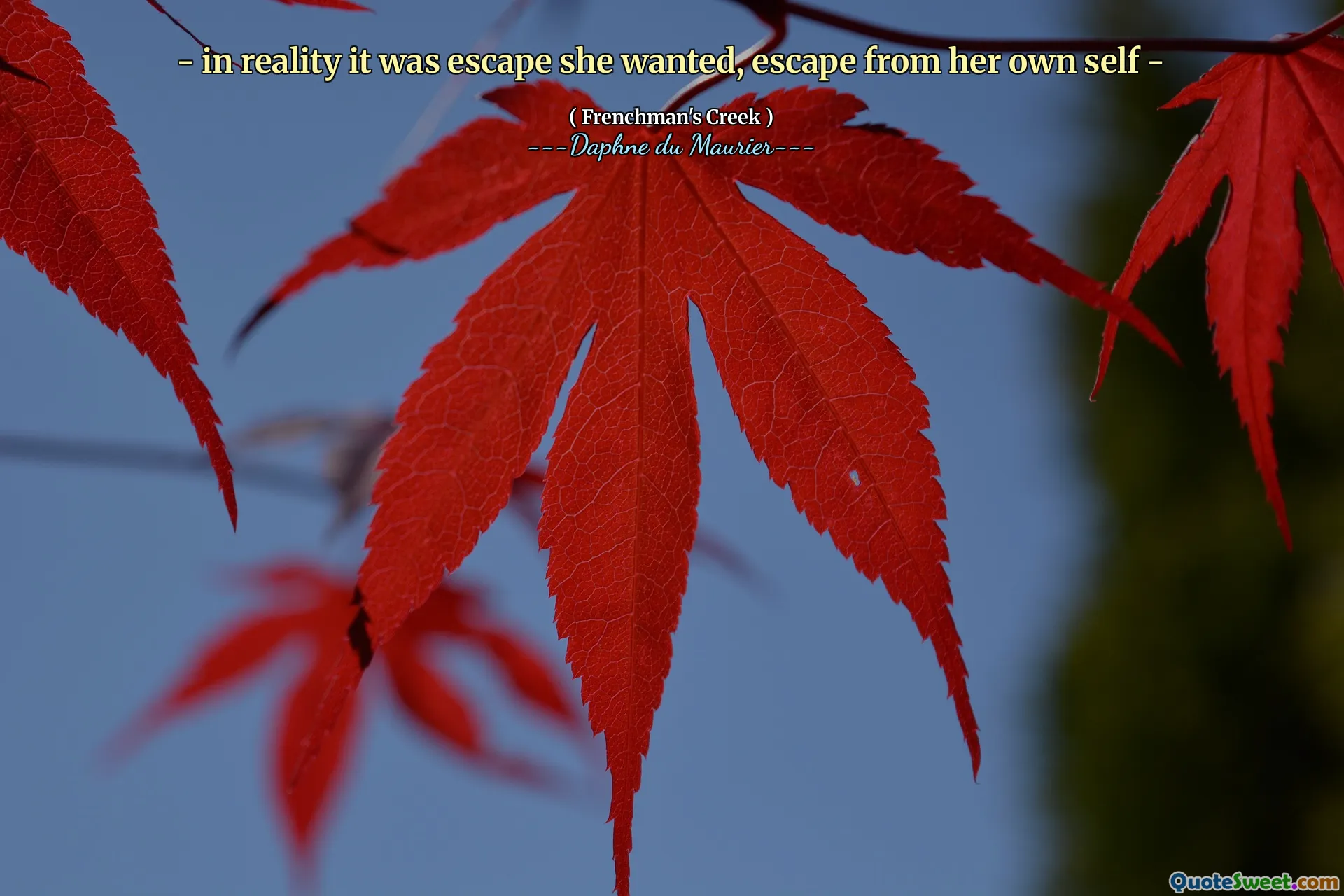
- in reality it was escape she wanted, escape from her own self -
This quote delves into the universal human desire to escape from internal struggles and the confines of one's own identity. Often, people seek external freedom as a means to evade internal pain, confusion, or dissatisfaction. The notion that the protagonist yearns for escape from her own self suggests an inner turmoil, perhaps feelings of inadequacy, trappedness, or existential angst. It highlights the complex relationship between self-awareness and contentment; sometimes, the very consciousness that makes us aware of our flaws or limitations becomes a source of suffering, prompting the desire to flee from our own mind and emotions. This longing for escape might be driven by a sense that one's true self is incompatible with happiness or harmony, pushing the individual to seek liberation elsewhere—through physical escape, distraction, or denial. Moreover, it raises questions about authenticity and the possibility of finding peace within if the root of dissatisfaction lies within. The psychological struggle here is palpable: the protagonist's wish to escape her own self symbolizes a profound need for transformation or acceptance. It also invites reflection on how internal struggles often shape our external actions, and how facing our own selves can be the most challenging yet necessary journey for genuine freedom and self-understanding.
The quote offers a poignant commentary on human nature’s conflicts, emphasizing that sometimes the most difficult escape is not from external circumstances but from internal realities. It speaks to the universal human experience of self-confrontation and the desire to redefine or escape one’s identity in pursuit of peace and authenticity. This narrative element is compelling in literature as it reflects the depth of character development and the complexity of personal growth, embodying an intrinsic challenge that many individuals face at some point in life.






